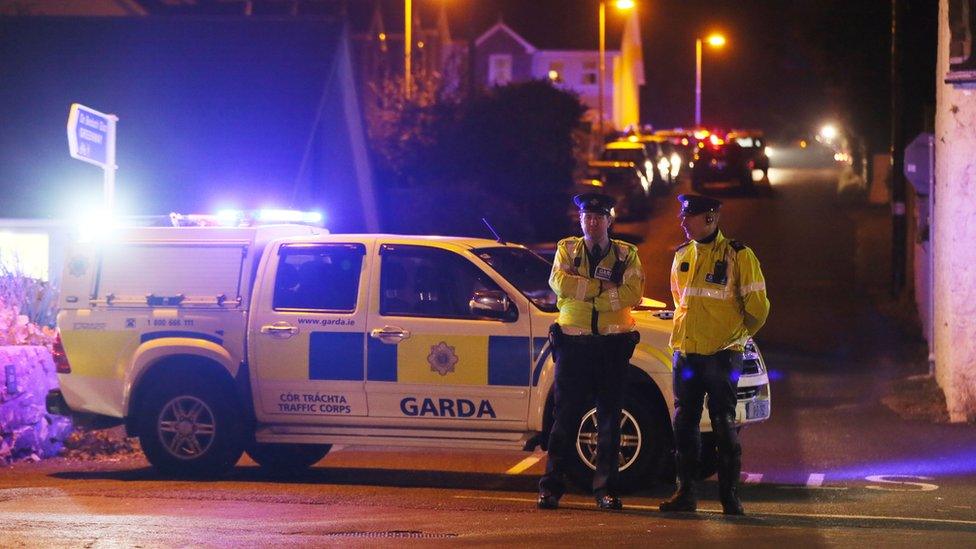Garda Síochána: Policing under pressure in the the 'twilight zone'
- Published
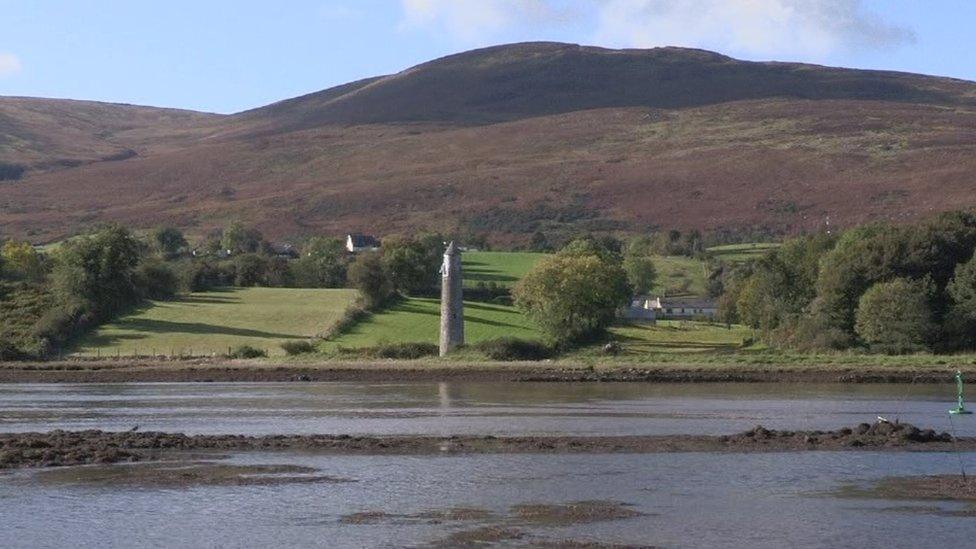
The Cooley peninsula is both beautiful and border territory
The Cooley peninsula with its mountain and sea views is an area of outstanding natural beauty and stunning scenery, not far from both Dublin and Belfast.
But it is also border territory - a place largely undiscovered by tourists.
For the Cooley peninsula stands shoulder-to-shoulder with south Armagh in Northern Ireland.
During the Troubles, this was nicknamed "bandit country" - British security forces ventured at their peril.
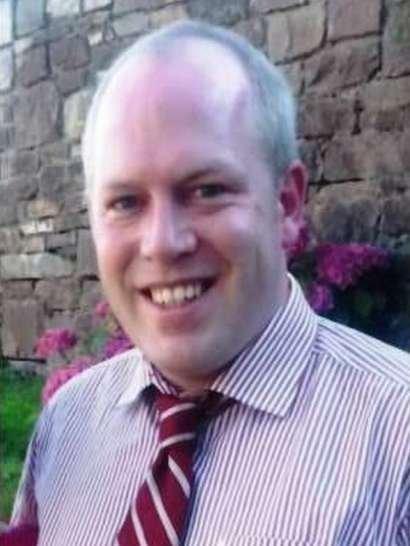
Garda Anthony Golden was married with three children
Garda Tony Golden, 36, was shot dead in Omeath, County Louth, earlier this month.
His murder has opened a fresh debate about the continuing legacy of paramilitarism and lawlessness in the area.
Micheál Martin, leader of the Republic of Ireland's main opposition party, Fianna Fáil, described it in the Dáil as a "twilight zone".
Garda Golden was shot dead while on duty working on a case of domestic violence, protecting a woman.
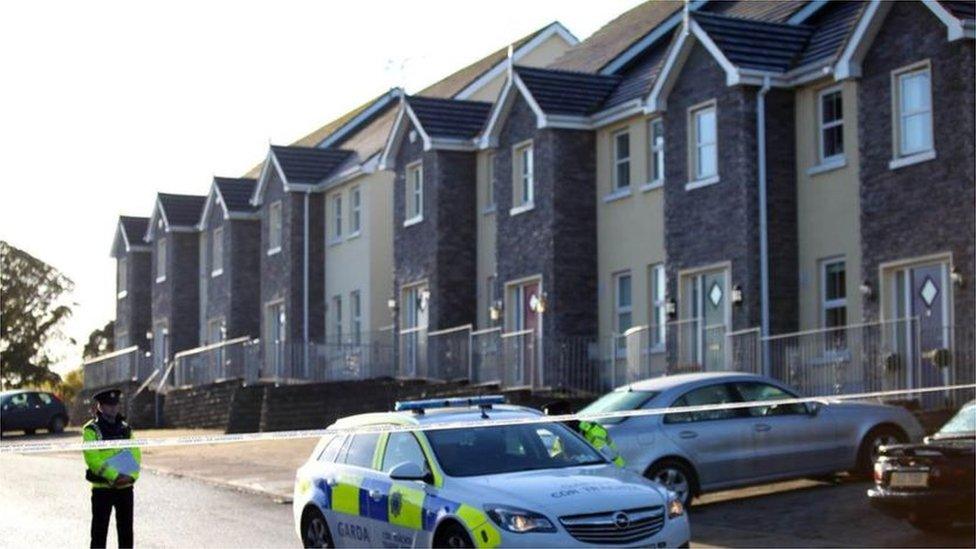
Garda Golden was shot at a house in Mullach Alainn, Omeath, as he responded to a complaint of domestic abuse
The gunman, Adrian Crevan Mackin, had been awaiting trial in the Special Criminal Court in Dublin for alleged membership of an illegal organisation.
He shot and killed the police officer and critically wounded his former partner, Siobhan Phillips, before turning the illegally-held weapon on himself in a case of murder-suicide.
In January 2013, another police officer, Adrian Donohoe lost his life while on duty in the area.
His murderers are suspected members of a cross-border criminal gang and have yet to be brought to justice.
For this reason, many living in the Cooley peninsula believe that more should be done to protect their home.
Johnny Larkin, chairman of the Cooley Peninsula Alert Group, a voluntary organisation that helps fight crime, has written to Garda Commissioner Nóirín O'Sullivan calling for more police officers.
He said Garda Golden had written to the group "keeping us informed on a continual basis of the numbers dwindling and dwindling".
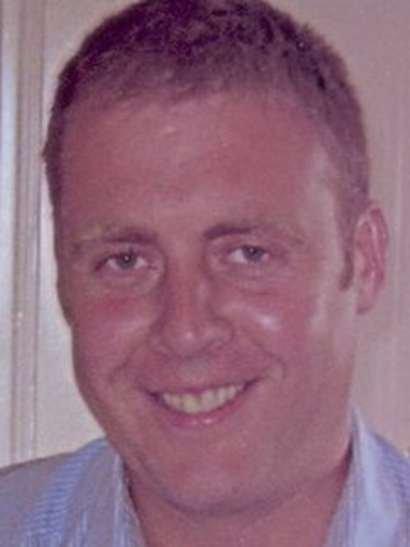
Det Garda Adrian Donohoe was the first member of the force to be shot dead on duty since 1996
In the immediate aftermath of the murder, 25 additional police officers were moved into north Louth.
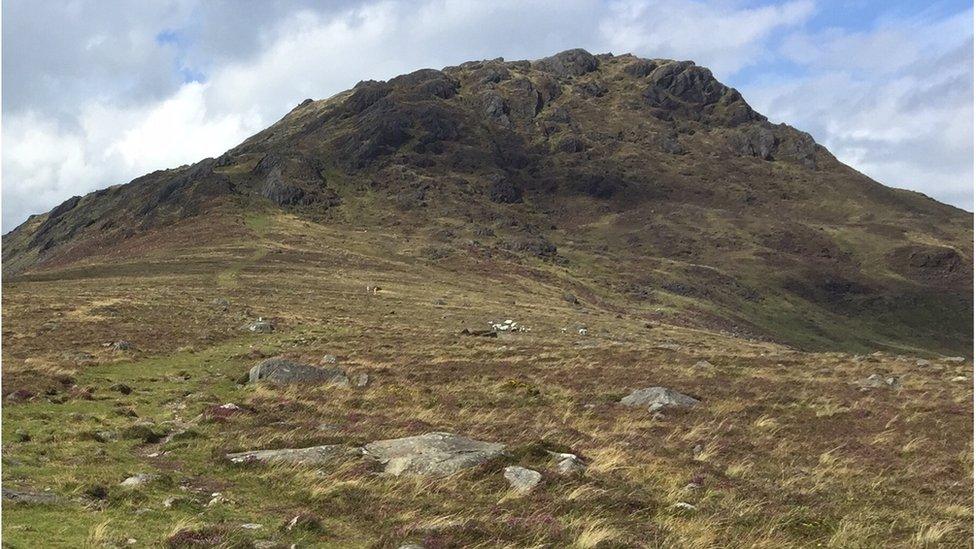
Slieve Foye in the Cooley Mountains
However, Ciaran O'Neill, vice-president of the Garda Representative Association (GRA) which represents rank-and-file police officers in the Republic of Ireland, is not impressed.
"Morale is at an all-time low," he said. He served briefly in Hackballscross in the area.
"Sixteen of those transferred gardaí were from another border division, Cavan-Monaghan. It's robbing Peter to pay Paul," he said.
Garda numbers across the Republic of Ireland fell because of the property-related economic crash, but now that the Irish economy is the fastest growing in the European Union, there is pressure to increase numbers again.
In the recent budget, the Fine Gael-Labour coalition, in advance of the expected Spring election, unveiled plans for an extra 600 officers and the Garda authorities said 5.3m euros (£3.8m) have been allocated to buy 260 vehicles by the end of the year.
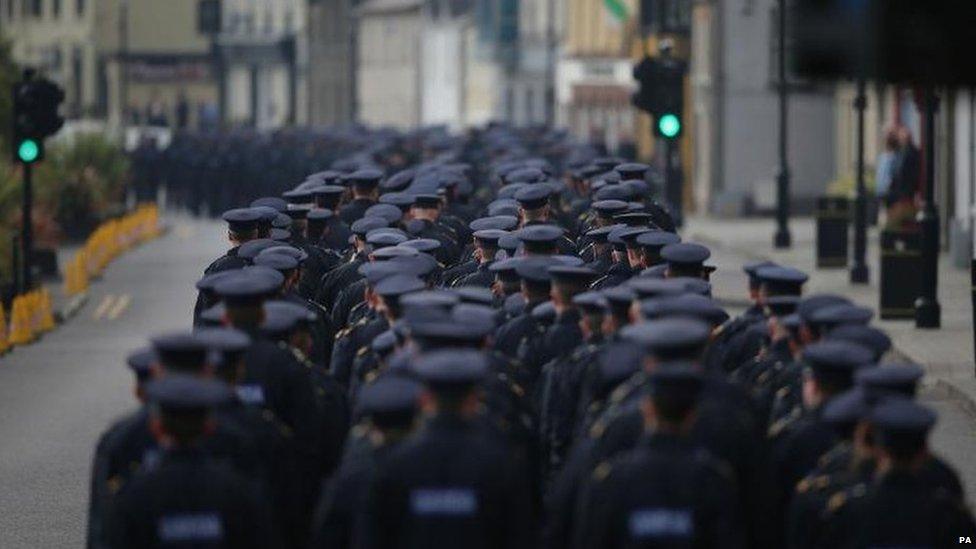
The funeral procession for Garda Golden passed through the village of Blackrock, where he lived with his family
But GRA President Dermot O'Brien asked: "Why should we be grateful for the equipment to do our jobs? The 260 new cars are essential pieces of equipment that the government should be providing for us."
He also criticised the closure of 139 garda stations, some in border areas, because of Ireland's economic crash.
He indicated that it was time some of the "over-crowded, dilapidated and unsuitable buildings" used as garda stations were re-furbished.
"A fully functioning garda station is essential for police work; we cannot record interviews or store evidence in patrol cars. Operations rooms and custody suites are basic tools," he said.
The Garda authorities said a "forthcoming recruitment campaign is scheduled to ensure that new gardai will be allocated to frontline duties."
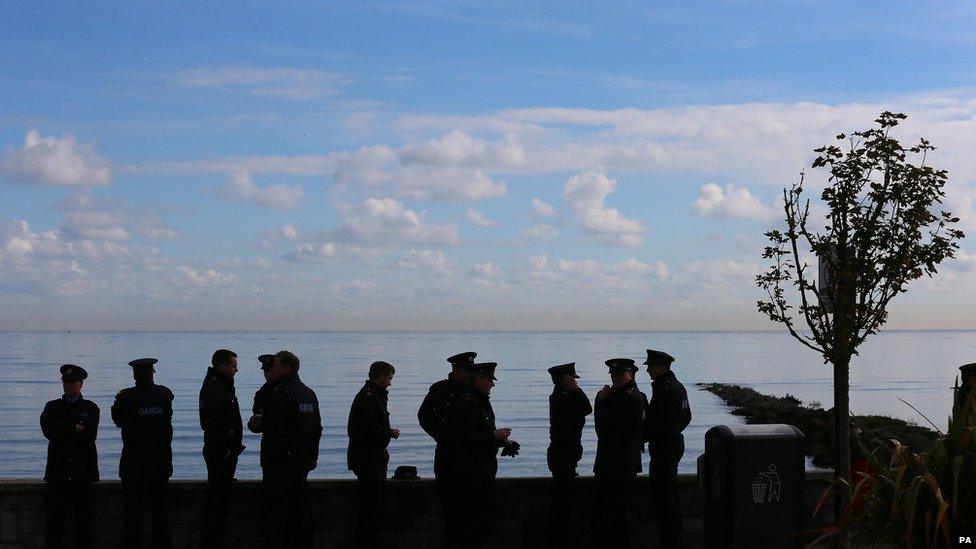
Thousands of serving and retired police officers were at Garda Golden's funeral to pay their respects
But Mr O'Neill argued that new officers would be on lower wages and would not receive rent allowances like their older colleagues.
Senior Garda officers resent any suggestion that not all is being done to combat cross-border crimes such as smuggling and fuel laundering as well as paramilatarism.
They said their force, an Garda Síochána, and the PSNI were continuing "to develop and implement strategies available to dismantle and disrupt criminal networks".
However, local people believe more should be done.
Perhaps then, the ghosts of paramilitary shootings and gang crime will be laid to rest and more tourists will savour the beauty of Cooley and what they have been missing.
- Published15 October 2015
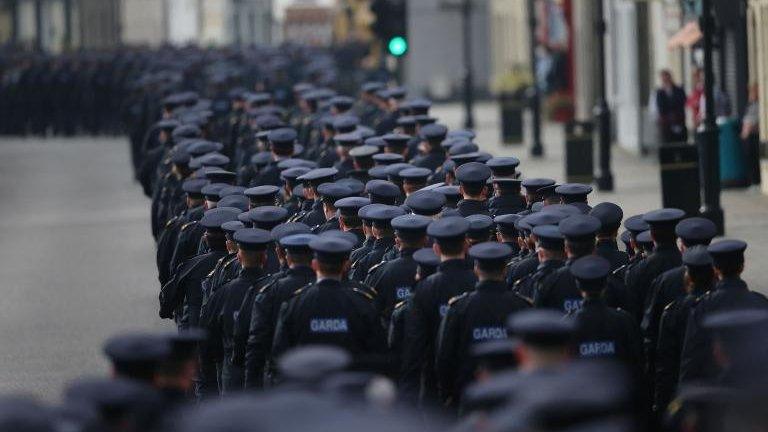
- Published15 October 2015
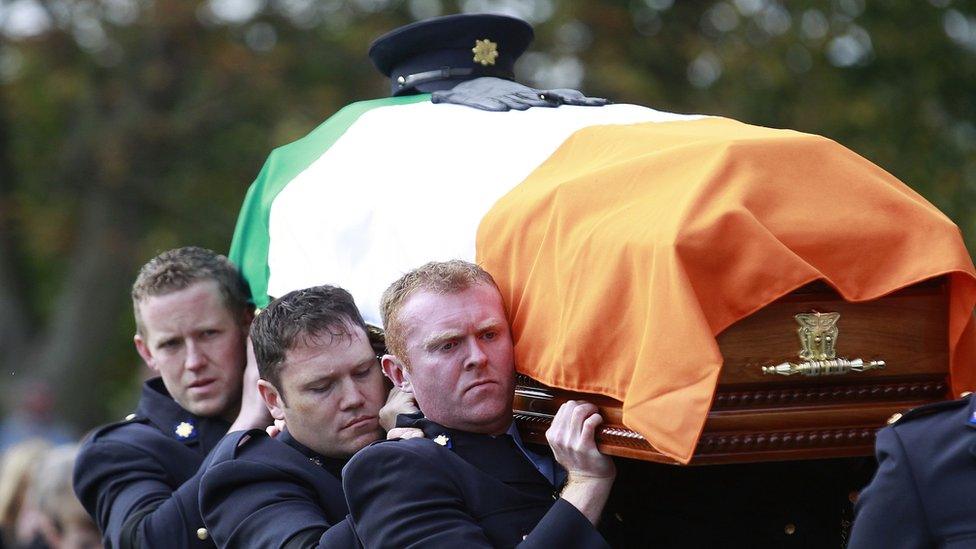
- Published12 October 2015
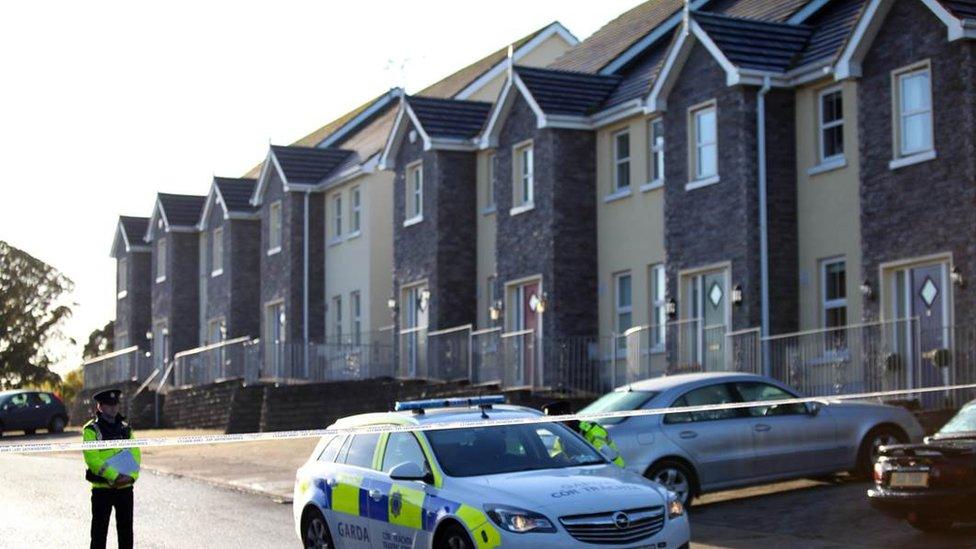
- Published12 October 2015
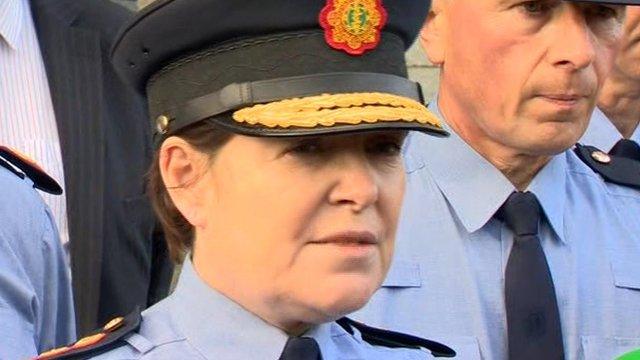
- Published12 October 2015
